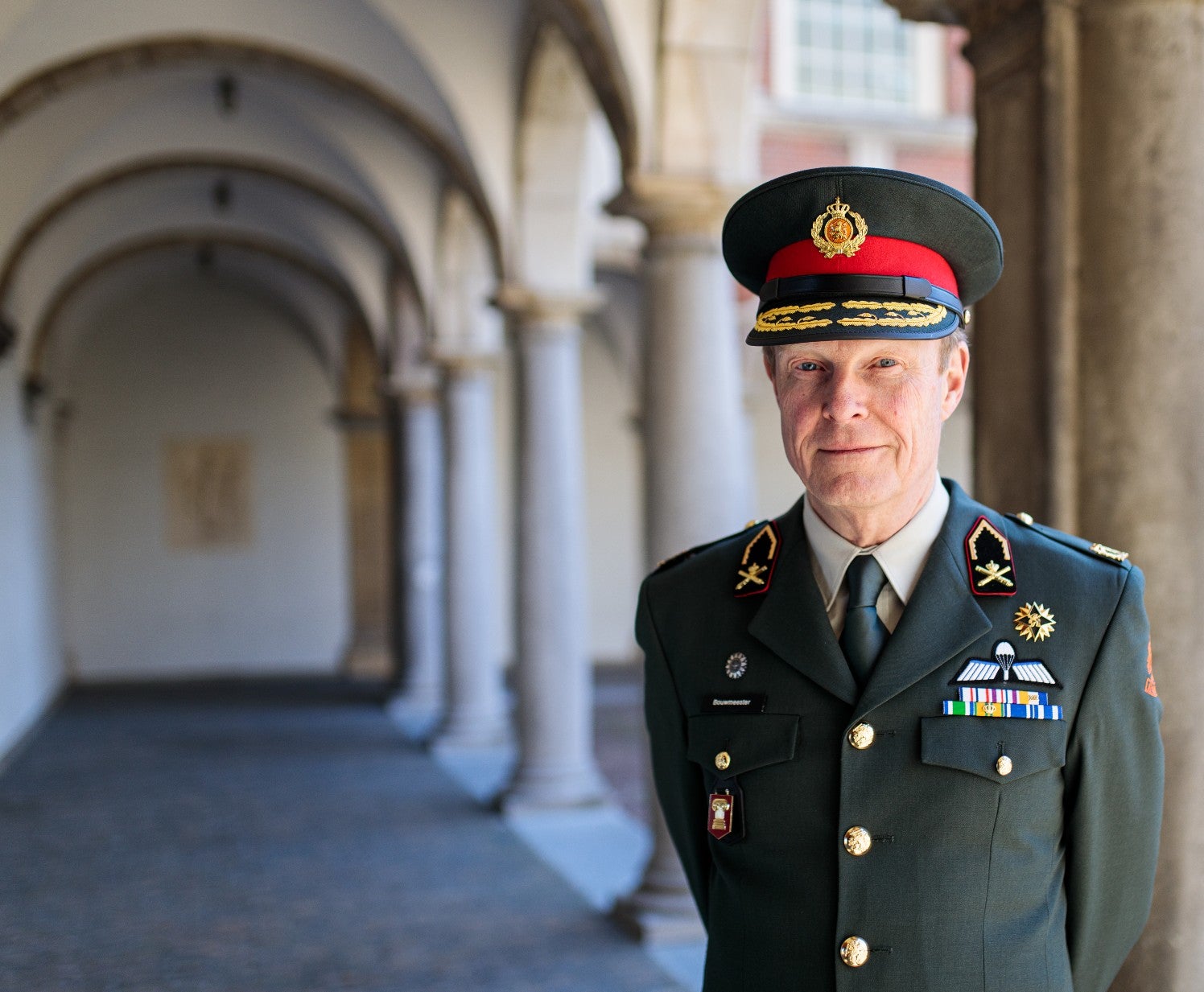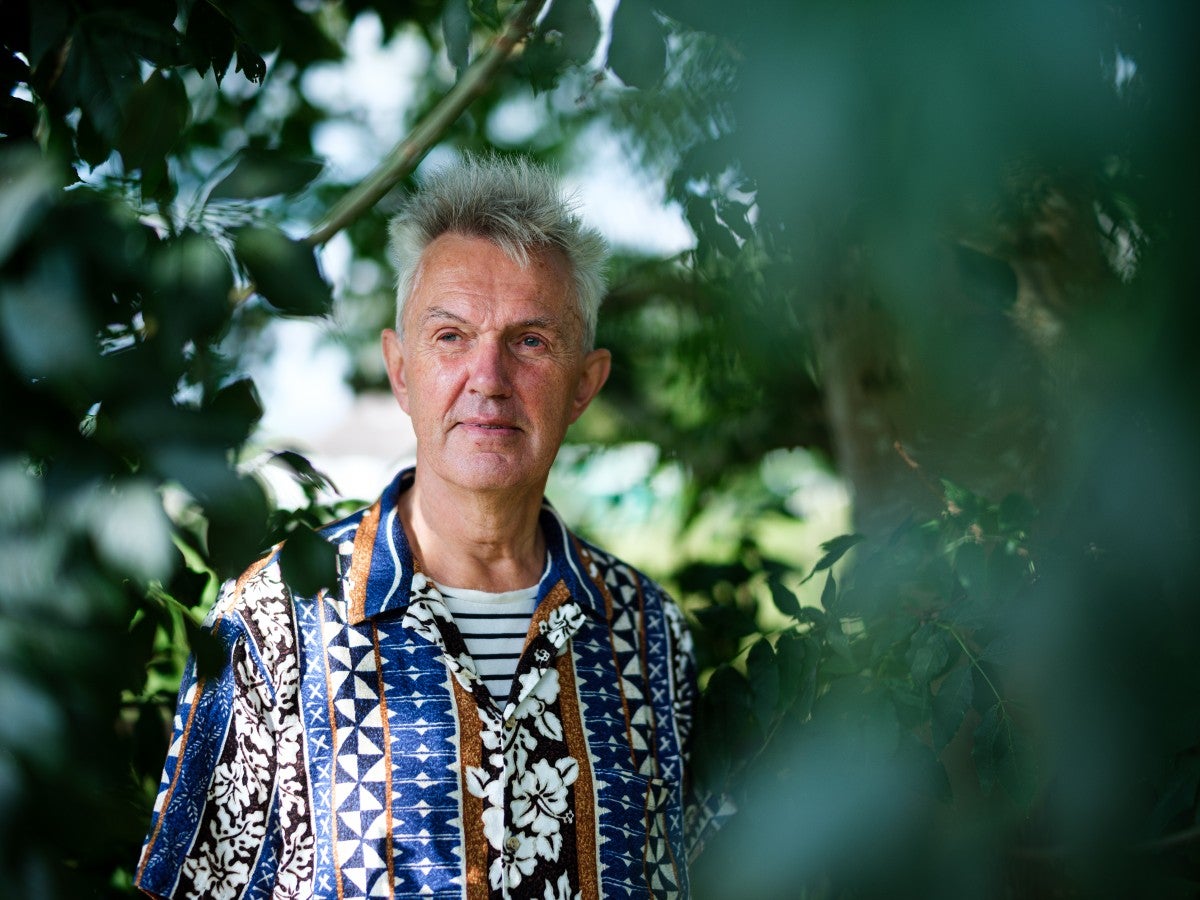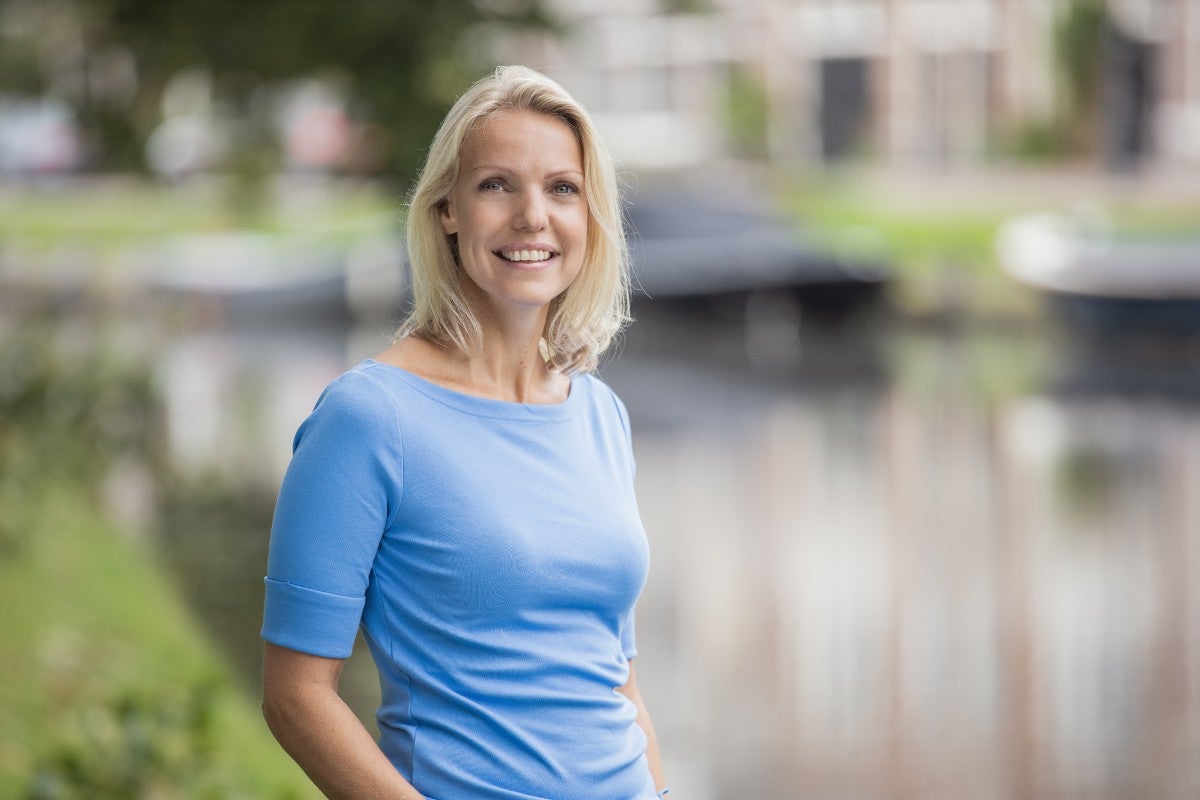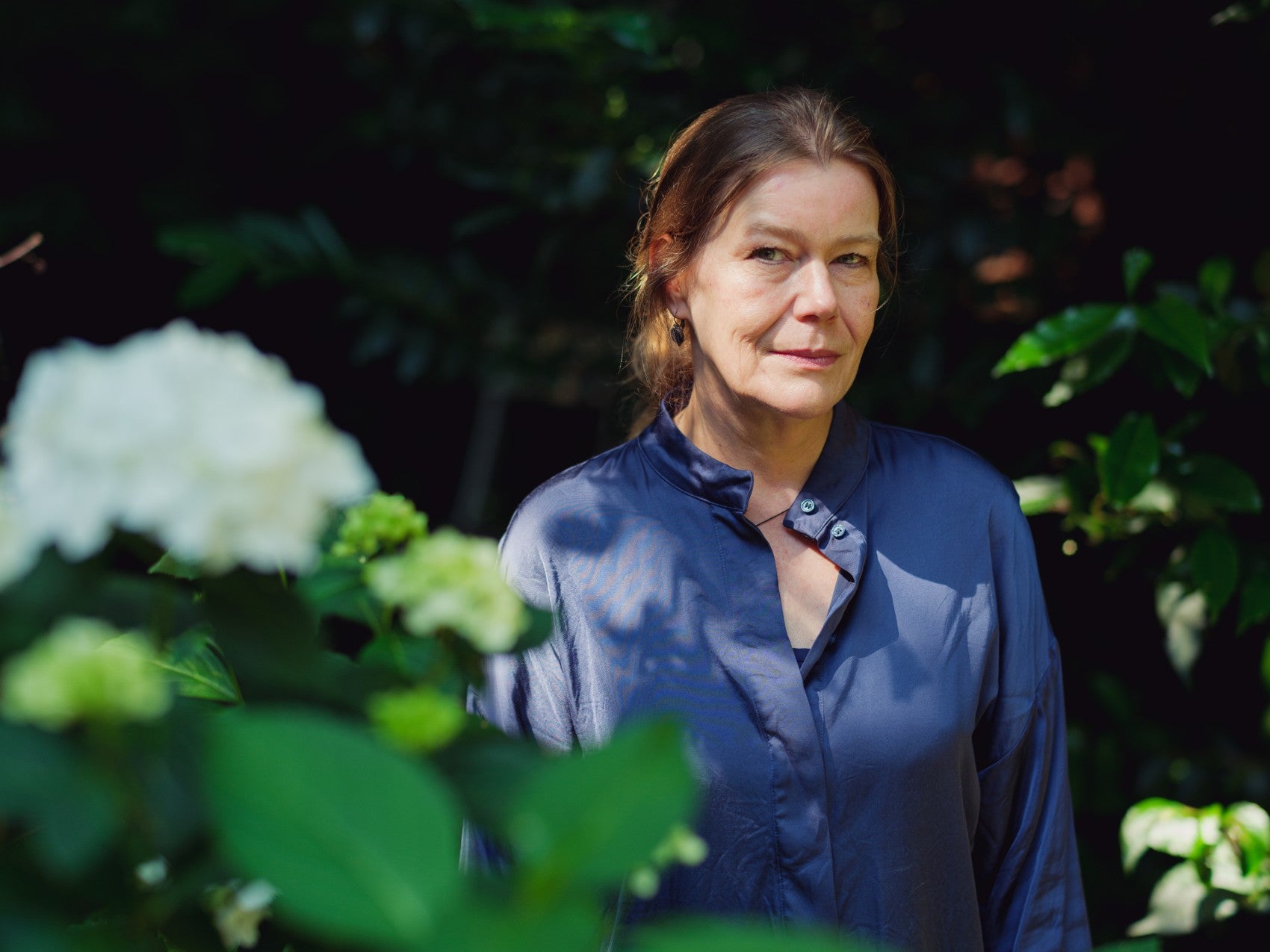VU Amsterdam alumnus and brigadier general, Han Bouwmeester, was recently appointed as the second military professor in the Netherlands.
VU Magazine talked to him about his controversial VU thesis on Srebrenica, activating compulsory military service and the war in Ukraine.
Bouwmeester agreed to meet at 1100 (eleven hundred hours, as he put it) at VU. The university brings back good memories for him. „Wonderful, all these young, promising people here. They have so much potential." He’s not in uniform because he has to go on to speak at another meeting about the war in Ukraine and that will be followed by a yoga class. „Everyone is doing yoga these days at the defence department. The men of the Commando Corp were the first to do it in Uruzgan and well, if the most rugged of the men do it, the rest is sure to follow."
Aside from your job in the military as a colonel, you have been appointed as a military professor. So you’ll literally be swapping your uniform for a suit.
„That’s right. I’m happy to be allowed to wear my uniform in public now. It was not permitted for a while for security reasons, and there was a time when I wasn’t always happy with it either. When I had just joined the military academy in the eighties, I had to travel by train to my parents’ house in uniform once every two weeks. I didn’t enjoy that because I would often be shouted at and accused of being a murderer."
„Now it sparks some interesting conversations. Last week on the train, there was a mother sitting with a little guy, I think he must have been about five or six years old, and he was staring at me open-mouthed. That prompted a great conversation with mother and son."
Did you know as a young lad that you wanted to join the army?
„At that age, I devoured all the war books I could get my hands on and dragged my parents along to all the war museums in the Netherlands. Once I got to secondary school, the idea of becoming a soldier slipped away. Studying economics or law seemed more likely. But when I had to do national service, that fanned the old flames of my love for the military. That’s how I ended up at the Royal Military Academy, and went on to become an artillery officer in the Royal Netherlands Army."
After that you went on to study Public Administration and Public Policy Studies at VU. Was that a logical next step?
„No, but from the early 1990s onwards, there were many cutbacks in defence, and I wanted to have more arrows in my quiver. My superiors said that if I wanted to have a senior post within the government, I would do well to take a university course that focused on optimising organisations. I was stationed in Oirschot near Eindhoven, where I worked as a soldier during the day. At around four o’clock, I would board the train to arrive here just in time for evening lectures. I started my studies in 1993 and graduated in 2000. During that period, I also moved twice, got married and did an almost seven-month stint in Bosnia."
„I completed the course after seven years with quite an uproar because my thesis was on the fall of Srebrenica."
Not the path your average student takes. What did you think of the study programme?
„I loved it. We had a close-knit core group who were also doing their study part-time alongside their work. That included the head of the rubbish collection service for the city of Almere and the head of a comprehensive school. The course subject matter was also very useful. For instance, at the Royal Military Academy, I struggled to get a six for statistics, whereas at VU, I got sevens or eights. It wasn’t just statistics, it was also about what stats are good for in your study or research. I rely on them to this day."
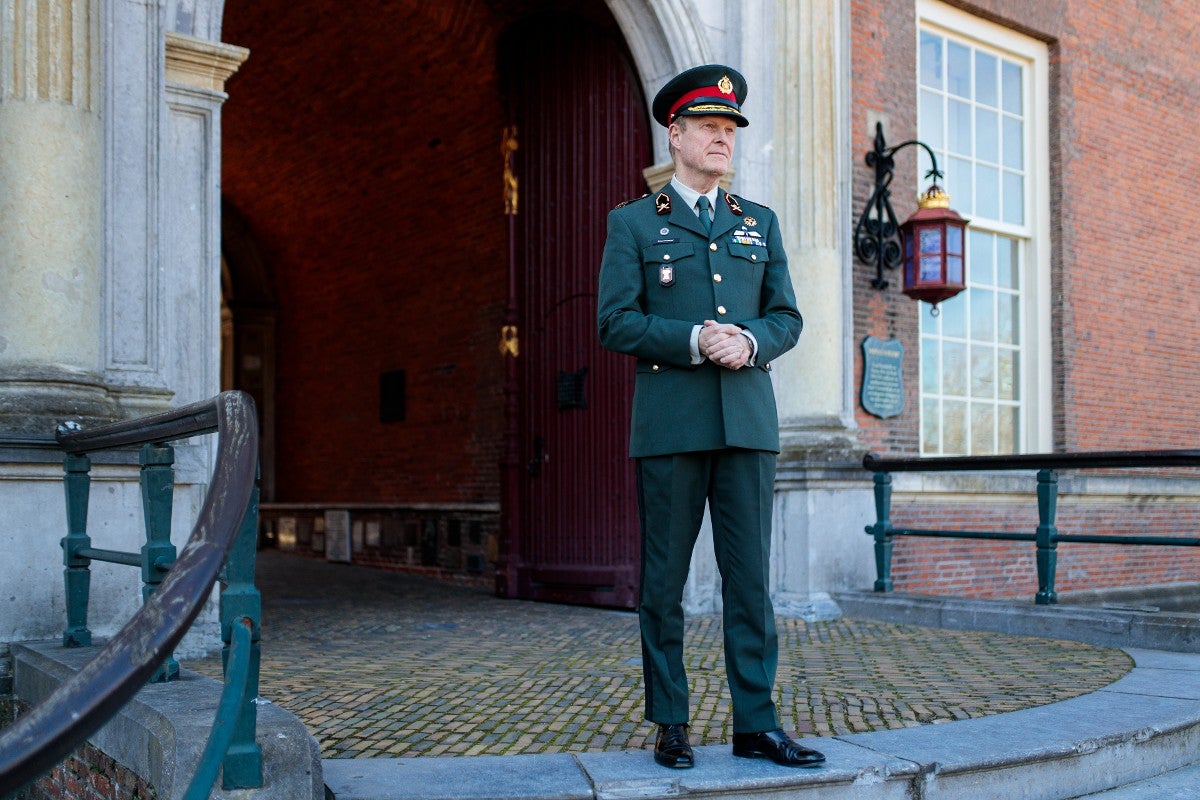
„I completed the course after seven years with quite an uproar. My thesis was on the fall of Srebrenica. The Ministry of Defence were not happy that an actively serving captain of the army had written a critical report about the fall. I was asked not to publicise the thesis, even though I had done everything the right way in my research. I only used public sources, for example, even though I could easily have spoken to the Dutchbat people."
You also served in Bosnia. Was that what prompted your choice of topic?
„The fall was in July 1995, and I went to Bosnia from December 1995 to mid-1996. I was never posted at Srebrenica myself because I was stationed at the British headquarters in Gornji Vakuf and later in Banja Luka. Obviously I went on patrols in Srebrenica. Despite the fact that I was never posted there, I do have some kind of kinship with the soldiers serving with Dutchbat."
Srebrenica is a chapter in Dutch history that has often attracted negative reporting in the press. Is it a subject that’s close to your heart?
„Ultimately, the soldiers of Dutchbat were left out in the cold for many years. Every year around July, new stories about Srebrenica would appear in the press. For years, the media, politics and defence have been at loggerheads with each other about Srebrenica, with accusations and counteraccusations going back and forth. That finally stopped last summer, when the cabinet apologised. I don’t think about it every day, but I must say it does affect me."
„Americans are much more inclined to resort to shooting than Dutch people are."
Public Administration and Public Policy Studies wasn’t the only course you took. You also studied at one of the most advanced centres of learning in the American army: the School of Advanced Military Studies. How was that?
„That was in 2004. All my fellow students had come there straight from Iraq. I picked up and learnt a lot from that, especially about the way Americans run operations. It is totally different to our approach as the Dutch army to solving military problems and directing operations. They also have a culture of openly bearing arms, and that’s reflected in their actions. Americans are much more inclined to resort to shooting than Dutch people are."
„My American contacts are really useful now, given the war in Ukraine. So I also often get in touch with them and say: hey guys, I’m hearing this, are you hearing anything like that on your American grapevine?"
You are now giving lectures at the Netherlands Defence Academy, including the Royal Military Academy. What discussions do you like having with students?
„To me, it’s crucial that we emphasise the ethical issues part of our future officers’ military training, because this is an aspect that you will encounter as an officer. Often you’re faced with choosing between a rock and a hard place."
„You have to weigh things up every time, and sometimes you can’t avoid having to send people on dangerous missions."
„I was sent to Afghanistan as the commander of a Provincial Reconstruction Team, and part of my assignment involved heading up five teams that provided support to the Afghan police force. Those were dangerous missions. The Afghan police had the reputation of being corrupt, so they were often attacked. I would sometimes ask myself: am I doing the right thing here? You have to weigh things up every time, and sometimes you can’t avoid having to send people on dangerous missions."
So your practical experience is a real advantage when lecturing.
„Yes, sure. See, if you teach courses like strategic decision-making and you only talk about what’s in the books, while your own experience in practice is slightly different, then it’s great to be able to compare it to that practical experience. It is and remains a model; reality is much less orderly."
The Dutch parliament debated cutting back on defence spending again this year. In this context, how do you feel about compulsory military service and, in particular, reintroducing the duty to report for national service?
„We currently have between 8,000 and 9,000 job vacancies in the armed forces. Filling these vacancies through conscription seems logical. That said, it’s not yet necessary to resort to conscription as a way of solving staff shortages. It is also a political issue and I don’t want to make any political statements about it. However, a trial involving young people doing national service for one year is due to start in September, but it will be on a voluntary basis."
„We aren’t sensing the danger yet, we don’t feel the need to take up arms."
But what is your personal opinion on this?
„In addition to them having ample facilities and rights to study, I personally don’t have anything against young people spending one or two years also doing their bit for society. You can also take this in the broadest sense. For example, they could work in a library, in forestry, in rubbish collection or in the military – that way, people won’t have to be forced to do military service."
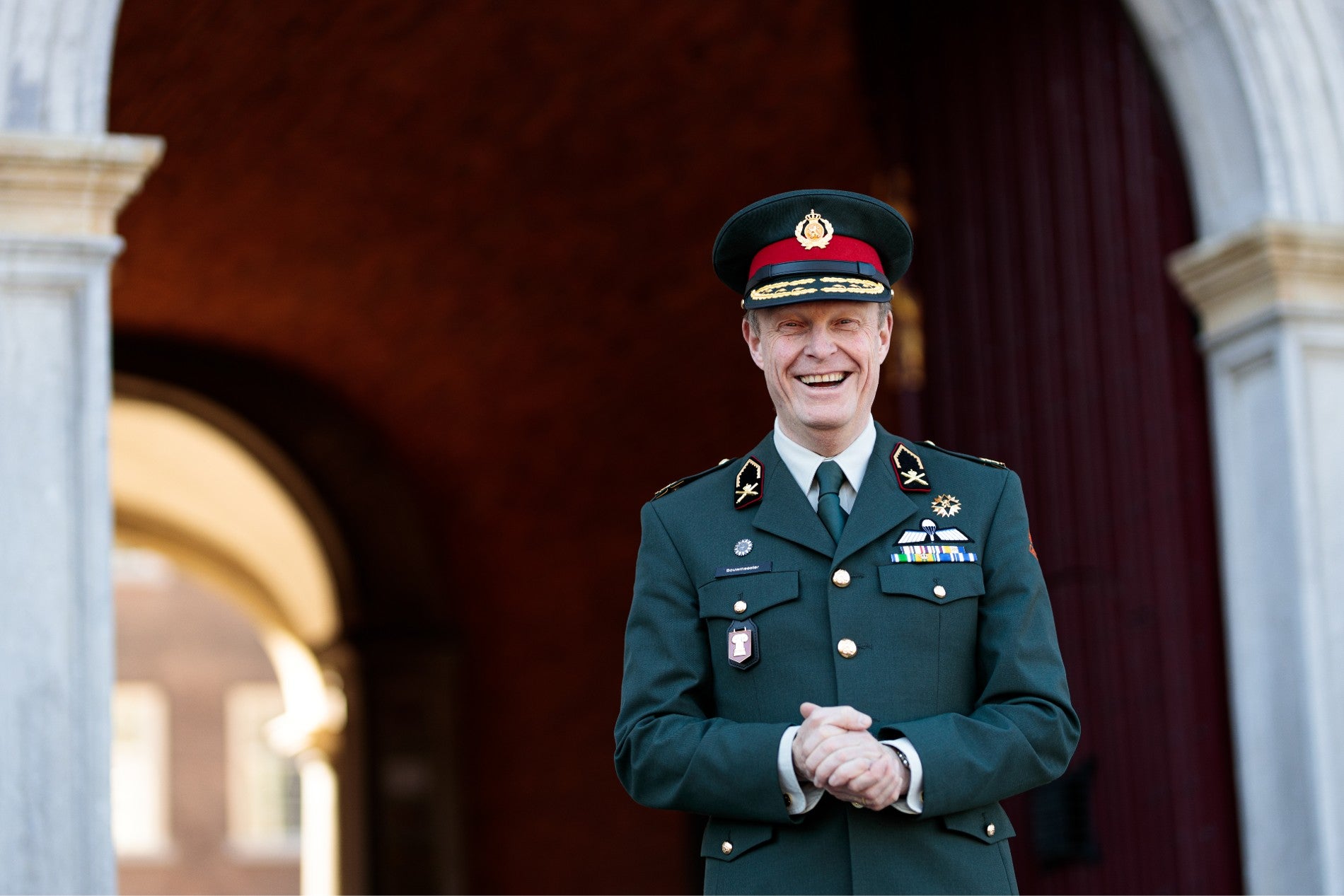
Do you think that this will enhance combat readiness? I know that this isn’t high in the Netherlands.
„Since the war in Ukraine, combat readiness has risen by 1% from 14% to 15%. That’s very low. We aren’t sensing the danger yet, we don’t feel the need to take up arms. That’s a privileged position to be in, and we should continue to cherish it. But when we’ve got our back to the wall, that will change drastically. I’m convinced of that."
„And not budget cutting for thirty years and stripping us down to the bare minimum, and then all of a sudden expecting us to spring into action."
But isn’t it an illusion that the war is very far away?
„When I say cherish, I also mean not taking it for granted that the war won’t reach us. Peace and having a peaceful society is precious. But you have to be prepared to invest in protecting that peace. And not budget cutting for thirty years and stripping us down to the bare minimum, and then all of a sudden expecting us to spring into action, as was the tendency when the Ukraine war started."
Finally, you have studied Russia for forty years and recently wrote a dissertation on the annexation of Crimea and the use of ‘maskirovka’: the umbrella term for all Russian methods of deception. Did you see this war coming?
„Yes, it was slow in the making. A lot of things preceded it that were not reported in the media. Also, in February 2022, the Winter Olympics in Beijing once again acted as a diversion, as was the case in Sochi in 2014 and Beijing in 2008. Almost all the media attention at the time was on this sporting event, while Russian authorities were already planning for war. On the pretext of those events, for instance, Russian passports were issued to buy loyalty for Russia."
„What did surprise me, however, was the way Russia ultimately approached the physical war."
„What did surprise me, however, was the way Russia ultimately approached the physical war. Despite the fact that they have very good thinkers and theorists at their disposal who know very well how to carry out a deep attack quickly, it’s not evident in the way they launched this war. Instead, their approach is a full frontal attack, fighting metre by metre. That brings them to villages and cities, which are always difficult to attack, and then the Russians resort to firing artillery until the population flees and the buildings are razed to the ground. And they do so in the hope that all the combatants will abandon their posts. That’s extremely costly in terms of manpower and casualties."
What do you expect in the coming period with respect to the war?
„They’re still fighting, but you can see it’s more of the same. I suspect that both sides think they’ve got a good chance of winning on the battlefield, and as long as that is the case, they won’t be prepared to go to the negotiating table. And the current war of attrition in the Donbas region may well mean that eventually neither of the two countries will have the capacity to carry out operations any longer, but neither wants to surrender to the other. And that’s when you end up in what’s termed a ‘frozen conflict’. Until there is some kind of breakthrough, but that’s difficult to predict. Either way, I don’t lie awake at night worrying about a nuclear attack. That said, there’s not much that keeps me awake at night."

